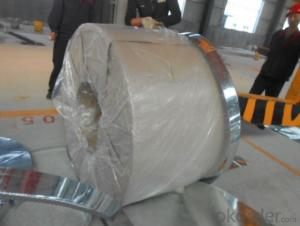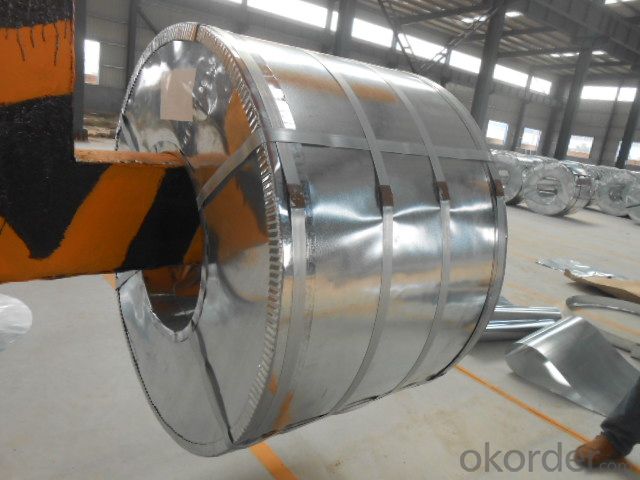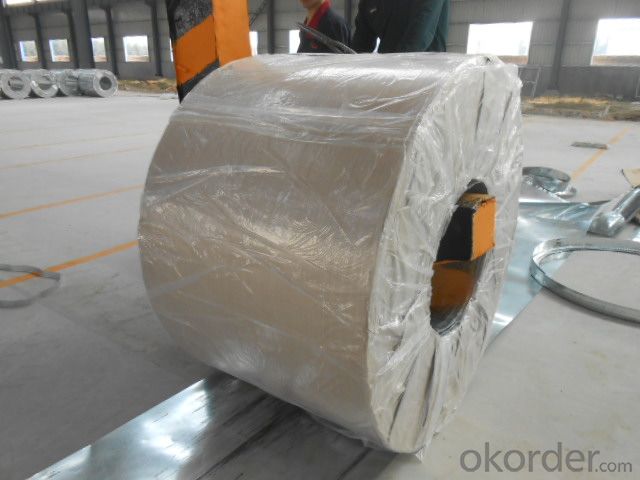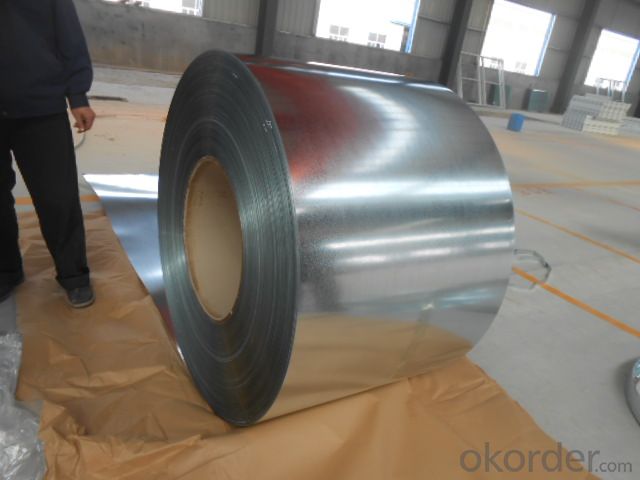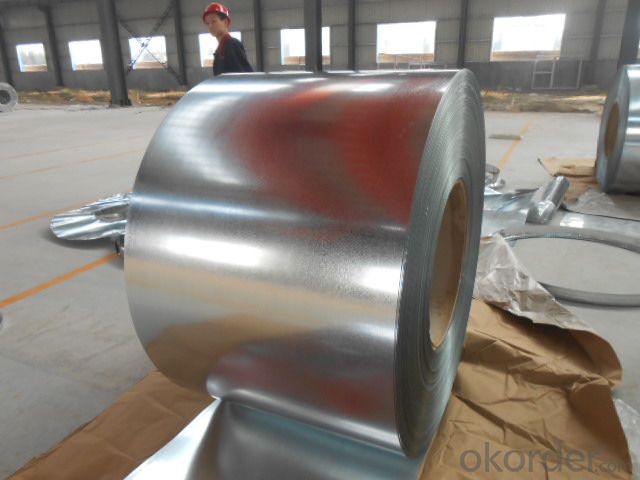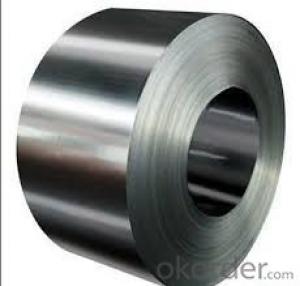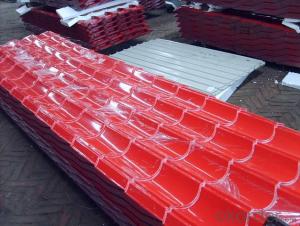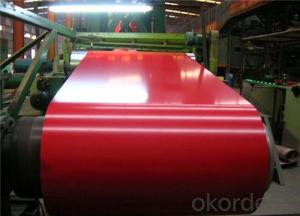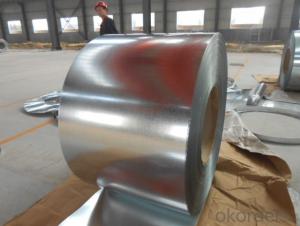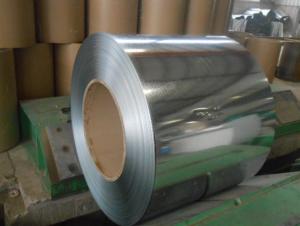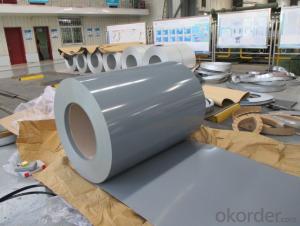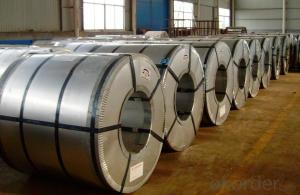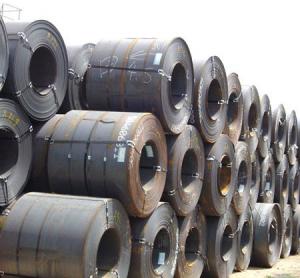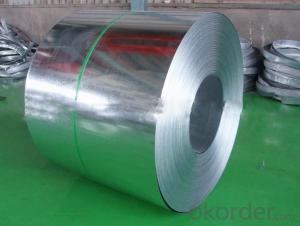SGCH 0.13*750mm Hot Dip Galvanized Steel Coil
- Loading Port:
- Shanghai
- Payment Terms:
- TT OR LC
- Min Order Qty:
- 10 m.t.
- Supply Capability:
- 100000 m.t./month
OKorder Service Pledge
OKorder Financial Service
You Might Also Like
Specifications of Galvanized Steel Coils supplied by us:
Thickness | 0.12mm-5.0mm |
Thickness tolerance | +/- 0.02mm |
Width | 800mm-1250mm |
Width tolerance | +/-2mm |
Zinc coating | Z30-Z150 |
Color | Grey white, sea blue, red or any RAL standard |
Painting | Top: 20+/-5um Back: 5mic---8mic |
Standard | ASTM, AISI, DIN, GB,JIS |
Material | SGCC,SGCD,SECC,SECD,DX51D+Z, S350GD, S450GD, S550GD |
Technique | Cold rolled, hot-dipped galvanizing, color coated, galvanized |
Spangle | Zero spangle, regular spangle or normal spangle |
Surface Structure | Galvanized, zero spangle, regular spangle or normal spangle |
Surface treatment | Chromate and oiled, chromate and non-oiled |
Packing | Export standard, or according to client requirement |
Min order | 5 tons |
Coil weight | 2.5-8tons or as client requirement. |
Coil ID | 508/610mm |
- Q: Many gerber knives are made out of what gerber calls high Carbon steels and I was wondering if anyone knew exactly what is this mysterious steel.
- A steel knifeblade is like a box full of a million ball bearings. The molecules pile up/line up just like those ball bearings. When it's pure, though, you can easily deform it....just like you can ram your hand down into that box of ball bearings. What happens if you pour a gallon of heated wax over those bearings, though? It fills the gaps between the molecules and solidifies the entire mass into one solid shape. If you smack it then, you'll break your hand. It'll hold its shape *much* better and longer. That's pretty basic but what do you expect at 04:00? ;) Addendum: At one time, in the late 80's to mid 90's, it was 440a...they then switched to 440c on their mass market stuff and 154 on their special runs....late 90's-2005 went to all 440c....today's knives are a mix of 440c and some pricier knives sporting S30V blades. If it's Gerber and it costs less than $40 today, 99% of the time it will be 440c.
- Q: The highest quality i have seen is 9260 and i want to know if there is a higher quality steel.
- Types of steel are one issue. But the quality of steel no matter what type is even more important. The only way to be sure that you are getting a good blade is to buy from someone that already has a reputation for producing great blades. Stop the questions about who thinks what type of steel is best and investigate the steel blades offered by companies like Bugei Trading company. they have good blades. Opinions vary, but Bugei has proven that they make good swords. That is all that is needed to be known. Any questions you have are best directed to them, not here.
- Q: why do you need to heat steel when hardening, molecules etc etc
- Gary is right, but maybe I can simplify it. It's very complex..... When you heat (hardenable) steel the carbon and iron form crystalline structures. Martensite and Austenite are most prominent, but there are others. Those are the hard crystals. When you quench it, those structures don't have time to dissolve as they would with slow cooling, so you freeze the crystalline structure in that state. Since that is too hard for most things, you temper it. Heating to a certain temp lets ~some~ of the crystals dissolve away. Annealing is heating and letting it cool slowly, so those structures will break up back into carbon and iron, leaving the steel soft. It's like a little atomic machine - crystals form, dissolve away, form again, with heat. It's waaaaay deeper than just that in detail, but that's the gist of it.
- Q: How are steel coils inspected for surface finish?
- Steel coils are inspected for surface finish through a visual examination process where trained inspectors assess the surface quality, texture, and any potential defects or imperfections. Additionally, specialized equipment such as surface roughness testers and optical profilometers may be used to measure the smoothness, waviness, and other surface parameters.
- Q: How are steel coils inspected for quality control?
- Steel coils are inspected for quality control through various methods. These methods include visual inspections, dimensional measurements, and non-destructive testing techniques such as ultrasonic testing or magnetic particle inspection. Additionally, the coils are checked for surface defects, such as scratches or corrosion, and are also examined for proper labeling and packaging to ensure they meet the required quality standards.
- Q: How do steel coils resist corrosion?
- Steel coils resist corrosion through a combination of factors including the presence of protective coatings, the use of corrosion-resistant alloys, and proper handling and storage practices. The most common method to prevent corrosion in steel coils is the application of protective coatings such as zinc, known as galvanization. This process forms a barrier between the steel and its environment, preventing exposure to moisture and corrosive elements. The zinc coating acts as a sacrificial layer, corroding in place of the steel. Another method to enhance corrosion resistance is the use of corrosion-resistant alloys, which are specifically designed to withstand harsh environments. These alloys contain elements such as chromium, nickel, or molybdenum, which form a passive oxide layer on the surface of the steel, protecting it from corrosion. Proper handling and storage practices also play a crucial role in preventing corrosion. Steel coils should be stored in a dry and well-ventilated area to minimize exposure to moisture. They should be protected from contact with other metals and materials that may cause galvanic corrosion. Regular inspection and maintenance are also important to identify and address any signs of corrosion early on. In summary, steel coils resist corrosion by utilizing protective coatings, corrosion-resistant alloys, and proper handling and storage practices. These measures work together to prolong the lifespan of steel coils and ensure their durability in various environments.
- Q: I'm just wondering what the best steel would be for an edc/hunting knife that could put up with alot of abuse.
- i have been a chef for 10 years now and have always had an obsesive composion with my knifes being dual. i hate it. after spending $100's of dollars on knifes i have found a couple of things to be key. where the knife comes from is important. japan and sweden are a notch above the rest. this just has to do with there tradition of fine craftmanship and pride in quality knife making that goes back 1000's of years. the thickness of the blade is important. the thinner the better. and the blade angel most knifes are around 20 degrees but less is better. it makes them easier to sharpen. and don't be fooled knifes need to be hoaned everyday of use the is no such thing as a forever sharp knife. at least not for a chef. so having said that. the best knifes on the market for quality and price are global, mizuno, mac, and the ones i use calphalon katana. investing in a good diamond steel is just as important i use fury fingers by ozzi tech. good luck i wish i had a girlfriend like you.
- Q: Can steel coils be stamped?
- Yes, steel coils can be stamped. Stamping is a common manufacturing process used to shape and cut steel coils into desired forms and designs.
- Q: I have a tiara and it oxidized and I'm not sure what material it is. I know it it isn't metal so i was wondering if is steel? Also if it's steel, can I do something to clean it?
- Yes - Steel can oxidize, its most commonly called rust Steel is a metal. Depending on the level of oxidation, you might be able to polish it with very fine steel wool. If is is really bad, then you might need a chemical cleaner such as Naval Jelly, which can be found at the hardware store. But the Naval Jelly might discolor the metal, so then you might need to polish it afterward to return its finish.
- Q: How are steel coils protected from humidity?
- Steel coils are typically protected from humidity through a process called galvanization, where a layer of zinc or another protective coating is applied to the surface of the steel. This coating acts as a barrier, preventing moisture from coming into direct contact with the steel and minimizing the risk of corrosion. Additionally, steel coils are often stored in dry, enclosed spaces or wrapped with moisture-resistant materials such as plastic or wax paper to further protect them from humidity.
Send your message to us
SGCH 0.13*750mm Hot Dip Galvanized Steel Coil
- Loading Port:
- Shanghai
- Payment Terms:
- TT OR LC
- Min Order Qty:
- 10 m.t.
- Supply Capability:
- 100000 m.t./month
OKorder Service Pledge
OKorder Financial Service
Similar products
Hot products
Hot Searches
Related keywords
